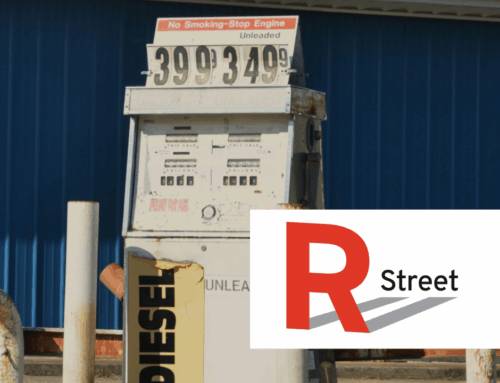FARLEY, Iowa – U.S. Rep. Abby Finkenauer met renewable fuel and agriculture advocates Tuesday, updating them on her efforts to renew a tax credit deemed critical for the future of the biodiesel industry.
“Things are sounding really good, and I remain hopeful,” said the Democrat from Dubuque before a tour of Western Dubuque Biodiesel in Farley.
Finkenauer has introduced legislation to reinstate a tax incentive that was allowed to expire in 2018. Congress previously regularly renewed the credit since 2010.
Biodiesel is a renewable fuel made from soybean oil, corn oil and animal fat. It then is blended with conventional diesel fuel. The tax credit had enabled the American biodiesel industry to build infrastructure, expanding production from a few hundred million gallons to more than 2.6 billion gallons annually.
“The tax credit is part of the transactional sale. It’s money that we’ve invested into that sale,” said Tom Brooks, general manager of Western Dubuque Biodiesel. “If it doesn’t come back, we’ve lost money on that sale. The (fuel) blenders that we sold to, that’s money that they’ve lost if it doesn’t come back.”
Finkenauer’s legislation would extend the tax credit while retroactively covering the lapsed period.
“What it means for us, for the future, is certainty,” Brooks said. “When you try to sell gallons, the first thing the buyer during that transaction asks is what percentage of the credit they’re going to get. It’s assumed that the credit is in play and the buyer is taking a part of that credit right off the bat. The big companies blend a lot of over-the-road fuel. They will buy the fuel. They’ll take advantage of the tax credit. The person blending can buy biodiesel cheaper than they can buy diesel fuel, so that makes the price at the pump cheaper for the consumer.”
Monty Shaw, executive director of Iowa Renewable Fuels Association, said the uncertainty about the future of the tax credit comes at a difficult time for farmers, who are already dealing with the volatility of weather, energy markets and the trade war with China.
“We are used to dealing with volatility, but it seems like there’s a lot of preventable volatility,” he said.
Finkenauer said she continues to shepherd her bill through committees, despite the partisan nature of Congress.
“When you have the House controlled by one party and the Senate by another, anything we do we have to find common ground, and it is happening,” she said. “We absolutely have to get this done to help our soybean farmers.”
Opponents of the tax credit, such as the advocacy group Taxpayers for Common Sense, argue that the government subsidy is both costly and unnecessarily provides incentives for overproduction, which distorts energy markets.
“After 15 years, taxpayers justifiably expect the biodiesel industry to stand on its own two feet,” wrote Stephen Ellis, executive vice president of the organization, in an email to the Telegraph Herald. “Instead, the biodiesel tax credit has ballooned to a more than $3 billion subsidy the last year it was in effect.”
Ellis said biodiesel production waxes and wanes depending on the availability of the tax credit.
“That is a clear market distortion with little indication that it will ever change,” he said. “And it’s not just the tax credit. Federal farm subsidies, education and market promotion, the consumption mandate and fueling infrastructure subsidies all support the biodiesel industry. Furthermore, retroactive tax extensions as is being contemplated here make no sense – taxpayers would be subsidizing behavior that already occurred.”
Ellis said his group opposes all energy subsidies.
“Right now, there are subsidies to help industries compete against other industries that are also subsidized,” he said. “That makes no sense.”
At Western Dubuque Biodiesel, Brooks said that, without the credit, fuel producers face stark decisions.
“Fortunately for us, we have working capital. We were very selective on what we spent our money on, and there are years when we just shut the plant down because it didn’t make sense to run financially,” he said. “Some of the (other) plants were running through cash, making sales that were at a loss. Somewhere along the line you’ve got to stop doing that. “Our problem now is if we stopped and laid off people, you’re not going to get those people back because Dubuque (County) has low unemployment. It would be a tremendous hit to us.”
Later Tuesday, Finkenauer visited Big River Resources in Dyersville.
“Everything she does for the ethanol industry and corn farmers is a benefit,” said Plant Manager Terry Manchester. “It’s a great thing having her come visit.”










